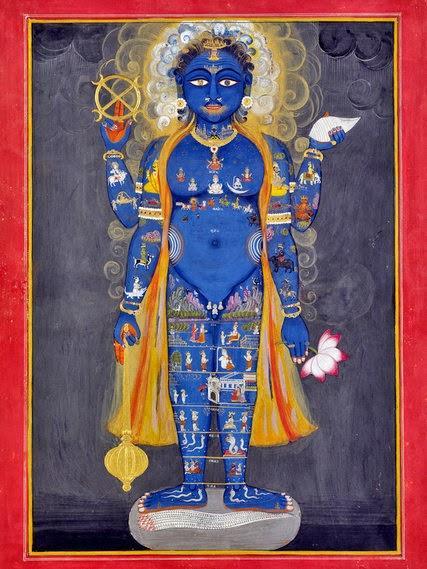 Greetings from India! I've come to Kerala once again to study with my Ayurvedic doctor and to get some treatments. It is so nice to be back in this lush, semi-tropical setting and to see my teacher and many old friends. But just before I left the States, I had the privilege of taking part in a weekend symposium on modern and medical yoga at the Smithsonian in Washington, DC that was held in conjunction with their groundbreaking exhibition, Yoga: The Art of Transformation. (The symposium is available for online for on-demand viewing.)
Greetings from India! I've come to Kerala once again to study with my Ayurvedic doctor and to get some treatments. It is so nice to be back in this lush, semi-tropical setting and to see my teacher and many old friends. But just before I left the States, I had the privilege of taking part in a weekend symposium on modern and medical yoga at the Smithsonian in Washington, DC that was held in conjunction with their groundbreaking exhibition, Yoga: The Art of Transformation. (The symposium is available for online for on-demand viewing.)The event started off with a keynote by Dean Ornish, which summarized his more than 30 years of scientific research that has found that a yoga-based program, including a yogic vegetarian diet, can reverse heart disease. More recently his work has focused on men with prostate cancer, and is again showing very encouraging results. And due the similarities between breast and prostate cancers, Ornish believes that his comprehensive lifestyle program may benefit woman with breast cancer. That's speculation at this point, but other research is finding beneficial effects of yoga for those with the disease, including allowing them to tolerate chemotherapy and other medical treatments with fewer side effects.
The program included Richard Miller and Larry Payne, long-time yoga therapists and the co-founders of the International Association of Yoga Therapists, which has become the leading organization in the field. Miller has garnered significant experience in recent years using the guided meditation practice Yoga Nidra with veterans with Post Traumatic Stress Disorder. Payne founded and directs the graduate program in yoga therapy at Loyola Marymount University in Los Angeles.
Also significantly represented were top yoga researchers, including Sat Bir Khalsa of Harvard Medical School and Lorenzo Cohen of the M.D. Anderson Cancer Center and the University of Texas. As those of you who read my online newsletter know, Khalsa, Cohen and I, along with the world's most prolific yoga researcher (with more than 100 published articles!), Shirley Telles of the Patanjali Yogapeet in Hardiwar India, have agreed to co-edit the first medical textbook of yoga therapy. (We're just getting started, so it will likely be a year or two until it's published.)
The event was hugely popular, filling the Smithsonian's auditorium and selling out months in advance. More than 100 people attended my Yoga As Medicine workshop on Sunday, and I was struck by how many physicians and other health care professionals were present. One incentive was that, under the auspices of the event's co-sponsor, the George Washington University Medical School, physician attendees were awarded Continuing Medical Education (CME) credits, highly unusual for a yoga conference!
All of this speaks to the growing acceptance of yoga as a therapeutic modality. Indeed, there is now so much yoga research being published that Sat Bir, one of about a dozen full-time yoga researchers in the U.S., says he can't keep up with it all. This doesn't mean that yoga is already being fully integrated with modern medicine, but we are getting there much faster than any of us would have predicted 10 or 15 years ago, so stay tuned….
By the way, if you were unable to see the show at the Smithsonian, which was fabulous, it will be coming to San Francisco's Asian Art Museum from February 21 to May 25, 2014 and then travels to the Cleveland Art Museum from Sunday, June 22 to Sunday, September 7, 2014.

